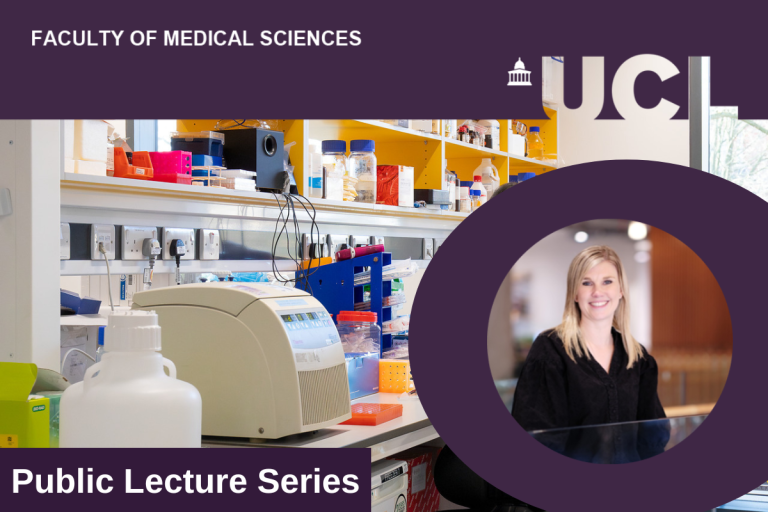VIRTUAL EVENT: Adapting to life in the liver: An immune cell perspective
16 April 2024, 5:00 pm–6:00 pm

Dr Laura Pallett will discuss how the function of immune cells in the liver is influenced by factors such as location and environment.
This event is free.
Event Information
Open to
- All
Availability
- Yes
Cost
- Free
Organiser
-
Emiliana Di Donna & Dr Zahra Mohri – Faculty of Medical Sciences
UCL Faculty of Medical Sciences Public Lecture in April is dedicated to World Liver Day with a talk about immune cells in the liver .
You could say we are all continually influenced by our location, environmental factors, the people we encounter, and even how hungry we are at a given moment. Immune cells are no different. In this upcoming FMS Public Lecture I will discuss how the identity and function of immune cells is influenced by such factors. We will focus on a subset of immune cells in the human liver known as ‘resident T cells’ that are highly specialised, trained assassins, that help to control infections and tumour cell growth.
This lecture will be followed by a Q&A with our speaker Dr Laura Pallett.
Follow the conversation on Twitter: #FMSLectures
Accessibility
This event will take place online. A link to the event will be sent to you prior to the event start time.
Live captioning is available for this event.
We aim to make our events as inclusive as possible. If you have any accessibility requirements or enquiries that are not covered in this profile, please contact the events team at fms.education@ucl.ac.uk. Please allow as much time as possible before the event to ensure we are able to make reasonable adjustments.
About the Speaker
Dr Laura Pallett
Research Group Leader at UCL

Dr Laura Pallett – is an UKRI Future Leaders Research Group Leader within the Institute of Immunity & Transplantation at UCL. Laura has a PhD in viral immunology investigating the metabolic constraints imposed on immune cells in the context of a chronic viral infection. Laura’s postdoctoral work was the first to shed light on the phenotype and function of a subset of human immune cells – known as liver-resident memory T cells (TRM) - demonstrating that these immune ‘sentinels’ can contribute to the control of chronic viral infection. More recently Laura has defined a mechanism by which these resident T cells are ‘educated and influenced’ upon interaction with their neighbours, the intrahepatic myeloid cell population, to become a ‘super-responder’ T cells, capable of responding in an unusual manner.
Finally, more broadly the Pallett lab (www.pallettlab.com) has a particular interest in understanding the cellular ‘conversations’ between liver-resident T-cells and the underlying stromal cell network, and whether this ‘conversation’ plays a role in the development and/or progression of fibrosis.
 Close
Close

